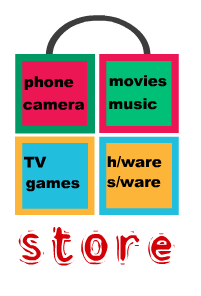freeee.in
experience excellence

Ever wonder what exactly goes on behind the scenes when you apply for a job? While the recruiting process varies by industry, company and even department, the end result is the same: One person out of many receives an offer.
For those who aren't hired, understanding what happened to their candidacy along the way can be a mystery. Not every firm notifies applicants that they have been rejected, and few say why. But knowing what goes on in the hiring process may give prospects the inside track for a job.
Many employers start filling vacancies below the executive level by using a team of recruiters or human-resources personnel to weed out applications that fail to meet a job's basic qualifications. "They should only be removing candidates who are a clear miss," says a leading HR Manager for an Internet company.
How this is done, the time it takes, and the number of applicants selected to go on to the next step varies, but there are some patterns. Some screeners eyeball every submission that comes in, while others search for certain keywords among applications. Likewise, there are screeners who consider cover letters in their evaluations and those who ignore them.
Career experts suggest erring on the side of caution.
Submit a carefully written cover letter and insert keywords—must-have qualifications usually found in the job posting—with every application.
Job hunters should expect to wait anywhere from a few days to several weeks before receiving a response to an application, if at all. A recent survey of 56 companies with at least 500 employees found that just 27% have a formal process to decline every external candidate they consider for an opening.
If you're worried that your application never arrived, wait five days and call the employer to ask for confirmation, since it is likely that several other job hunters have made the same inquiry. Use the opportunity to inquire if there are any time frames as to when candidates might hear if they were selected for an interview. What's more, recruiters will only review applications that show a person meets a job's basic qualifications, based on screening questions.
One common exception many firms make: A job hunter who is referred by an employee or other trusted source. A referred candidate may be given immediate attention, potentially speeding them to the interview stage.
The next step is often to have human-resources staff, hiring managers—or both—narrow down applicants to those whose skills and work histories closely match the job description. If they are unsure, they might reach out by email or phone to learn more. In the end, they will typically have a list of candidates, usually no more than 20, to interview. However, as new applications come in, it is possible that the list will grow, especially if several of those initially selected fail to pass the next round, which is usually a phone interview.
Often human-resources personnel, but occasionally hiring managers, will first interview candidates over the phone to save time and cut costs associated with on-site visits. Those calls last anywhere from 10 minutes to an hour or more. In general, the purpose of the phone interview is to make sure candidates understand the job and that it lines up with their salary expectations. If it doesn't, there's no point in going any further, though on rare occasions exceptions may be made for candidates who name salaries above the maximum for a job. "They'd have to wow us," noted by a hiring manager of a leading professional services organization.
Phone interviews may be used to get deeper information about a candidate's background to help determine if the person is a strong fit. Candidates also may be evaluated on their communication skills.
Sometimes hiring managers will reach out to candidates for a second call before scheduling an on-site meeting to dig deeper. And some firms require candidates to complete personality or competency tests benchmarked according to what an employer considers to be key traits for success in a particular role and are therefore difficult to game. Candidates who don't cut it are typically informed within a day or two.
Some firms do bring candidates in for face-to-face meetings right after reviewing their applications. "We look for well-rounded individuals whose interests and life experiences suggest that they would adapt well," conveyed by a Vice President HR of a prestigious consulting organization. "We look for evidence that they have led and been empathic with a team or challenging situations."
Up to six applicants are typically granted first-round interviews per opening, which involve meeting with two company consultants for about 40 minutes each. Of these, about half go on to second-round interviews with up to four company partners. During the meetings, candidates are asked about their work history, career goals and other relevant topics, plus they are expected to participate in role-playing exercises.
The hiring manager spends a significant time discussing a business problem that the interviewer has actually worked on, with a caveat that client names and other details are kept anonymous. It's a way to explore how you would approach a similar problem.
At most firms, once interviews are done, hiring managers will convene with colleagues who met the finalists to get their opinions on who should get an offer. But in the end, it's still the hiring manager's call. That decision often comes down to fit and level of enthusiasm. The goal is that they are making sure that they pick someone who is pumped up about the role.





